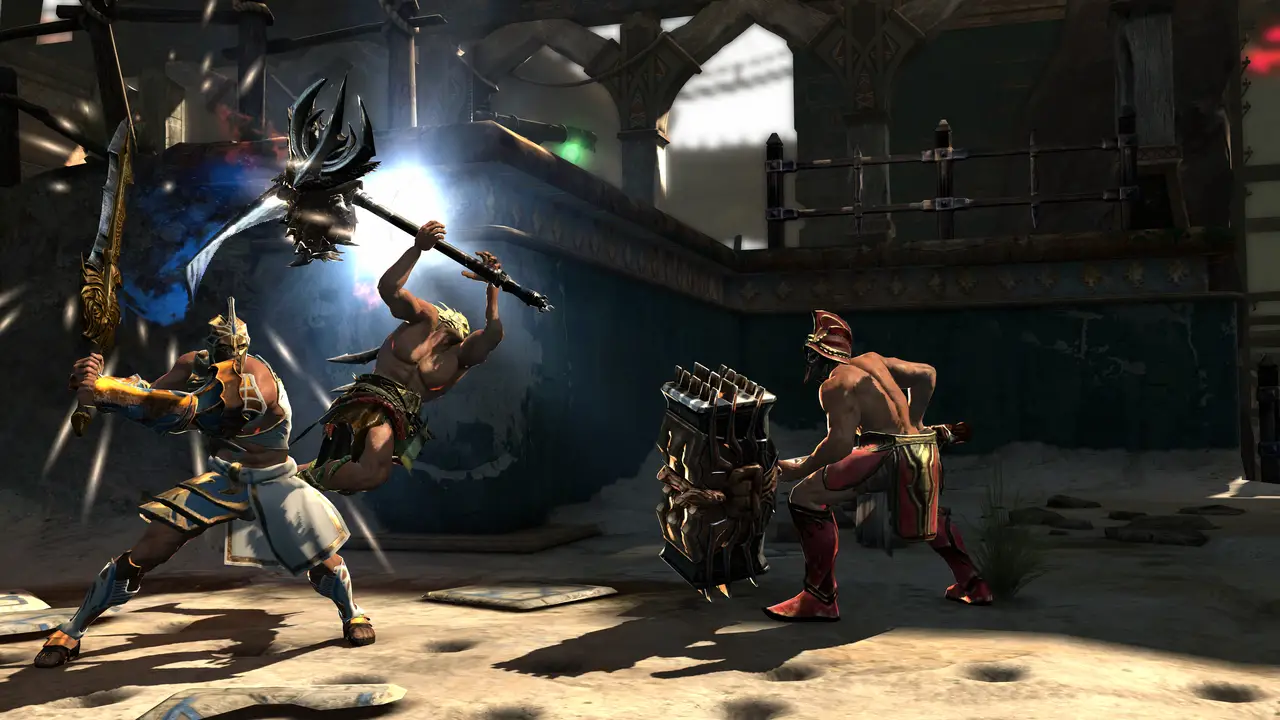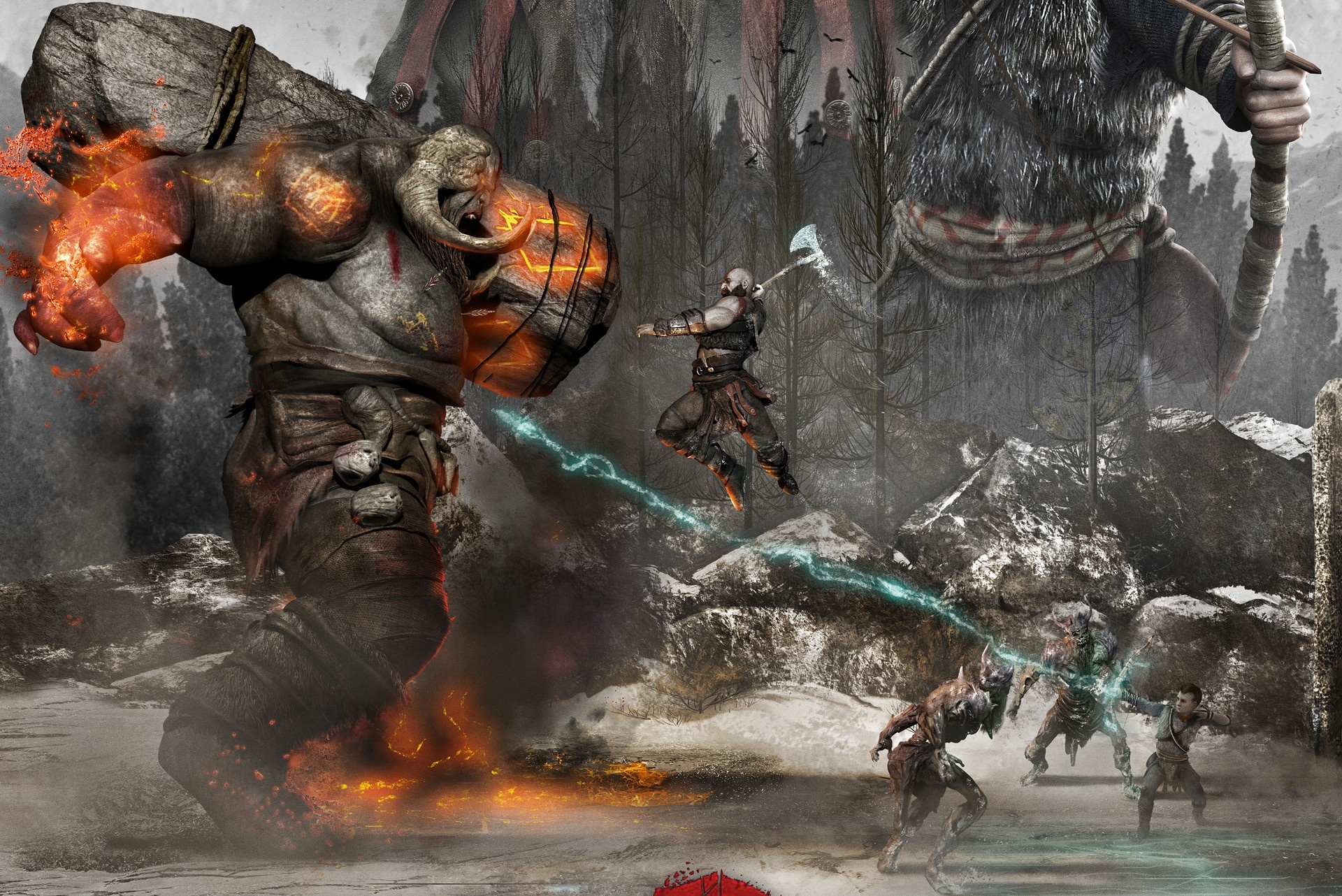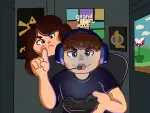“God of War” is arguably one of gaming’s premiere franchises. In the mid-2000s, it was a fresh step away from conventional games that saw little to no violence. The brutality of Kratos and the enchanting world of Greek mythology was addicting.
It didn’t matter that Kratos was an unrelatable plot piece and that the plot itself was all over the place — all that mattered was ripping heads off and killing Greek gods.
Over the course of the past few years, though, its popularity has dwindled as the new generation of consoles has demanded more story-oriented, single-player campaigns and loot-crazy multiplayer experiences as opposed to the hack-and-slash, power fantasies that made the series popular.
It’s no surprise that we’re seeing developers shy away from games with no relatable characters, semi-structured plots and endless violence that really has no point, and delving more into story-oriented games with characters fans can relate to and care about.
Franchises or ideas within film, a TV series, video games or even literature, eventually run their course and naturally lose their spark. Not every idea is meant to be an expanding universe or have an annual release catering to the same fans that don’t get tired of repetitiveness. *Cough* “Call of Duty” *cough*.
Before the age of remasters and reboots, good ideas would run their course and then just end, forever living in our memories where they reappear once in a blue moon. This is where many believed the “God of War” series was headed.
“God of War: Ascension,” the last main entry in the series, did little to excite players who had grown tired of the Greek setting. After seven installments to the series, it was unknown what was to become of the Playstation’s most psychotic protagonist.

The mystery was laid to rest in June 2016 when Sony revealed the newest chapter in the “God of War” series at E3. What Santa Monica Studios had cooked up was beyond anything anyone had imagined. Gone are the days of Greek mythology, as in the new installment, Kratos has left that world behind to take on an entirely new challenge: invading the world of Norse mythology.
Along with a change of venue, “God of War” brings entirely new game mechanics, the introduction of Kratos’s son, Atreus, and a brand new weapon reminiscent of Thor’s Mjolnir. Another fascinating change in “God of War” has to do with the main protagonist. In this new installment, Kratos is older, wiser and a lot more passive.
The titular god of war, having defeated his enemies, is no longer obsessed with rage. But judging from early gameplay, there’s still a whole lot of rage to be had within Kratos, he’s just more controlling of it.
Perhaps one of the biggest changes is the fixed, third-person, over-the-shoulder camera. Just one of the many similarities to “The Last of Us” seen in this game. Unlike previous “God of War” titles, which had an all-seeing cinematic camera, this new installment takes a more modern direction that is sure to have a more intimate feeling all around.
Complementing the new camera angle is the fact that the game, in its entirety, is all one shot. There are no cutscenes, no loading screens and no interruptions as players trek along the Norse world. This is no surprise as video games get closer and closer to cinematic experiences.
It’s a novel idea to have no cutscenes in a video game, but years from now we’ll be asking ourselves why we hadn’t done so earlier.
Taking another page from “The Last of Us,” “God of War” introduces a young child companion that aides our hero on his journey. Arteus is Kratos’s son and represents a path away from the vengeance that consumed him for so long. There’s no co-op in “God of War,” so Atreus will be AI-controlled for the entirety of the game.
Arteus will help Kratos out in combat in addition to being the central narrative to the story, he carries a bow and arrow with him that he uses to stun enemies so that his father can disembowel them. He also solves puzzles and aids Kratos in navigating the dangerous terrain of the Norse universe.
The cool thing about Atreus is that he can’t die in combat, so there’s no annoying AI holding you back in your missions.
Also, much like Kratos, Atreus levels up throughout the game. Players can equip themselves with new skills, armor and special abilities as they earn them, much like in “Skyrim.” Having a customized Kratos by the end of the game is going to be so badass.
Fans of the series will remember that Atreus isn’t Kratos’s first child, but this is the first time we will see Kratos doing a bit of parenting by attempting to prepare his child for the world around them. While Kratos is teaching his son how to be a badass, his son is teaching him the meaning of humanity, trust and redemption.
By giving him a son, Kratos has to balance his instincts and rage against responsibility and a need to soften his rough edges for his son. The game will heavily focus on Kratos’s attempt to put aside hate and rage for the sake of his son.
He still has a monster lurking inside him, and as much as he attempts to control it, that part of himself will probably come out by mistake. Coping with this common parenting failure is another piece of what makes this latest iteration of Kratos that much more human. It’s a side of Kratos we barely got to see in the Greek era of games.
The Blades of Chaos that have defined the “God of War” series for so long are gone as well. Instead, Kratos has a new weapon that is equally as deadly. The axe, named Leviathan, is his weapon of choice in this strange new world.
Much like previous games, players string together light and heavy attacks, but yet another change has the attack buttons on R1 and R2 as opposed to the face buttons they’re used to smashing.
These new mechanics not only give a new way of seeing and controlling Kratos, but combat is heavily modified to conform with the new camera angle. Combos are a huge part of “God of War.” Anyone who’s played the games knows how satisfying it is to repeatedly strike enemies until a floating button appears indicating that it’s time to lay down a devastating combo attack.
Though because of the new camera angle, combos aren’t going to be as fast-paced as previous gameplay, combat is no longer based on chaining combos together. The combat will surely be more refined, meaning that combos will have to be more tactical and thought out.
We won’t necessarily be seeing a kinder, gentler Kratos, but a more strategic Kratos. Industry folk who were granted early access to the new title say there’s a distinct similarity to “Dark Souls.”
A new camera angle, new game mechanics, a new world and a new weapon are huge changes for a seven-installment series. Though this is exactly what “God of War” needed. Judging from the early footage, the game feels more grounded yet fresh, which goes with themes of maturity and exploration.
The game also feels like less of a power fantasy than previous games and more of a cinematic thriller where players are engaged with the characters and plot. As players learn more about “God of War” it’s looking less like a new chapter in the series and more like an agglomeration of the “Uncharted” series and “Logan.”
This new “God of War” is sure to hit the feels, unlike its predecessors. These new changes may not result in the formula fans expect, with many of the series’ hallmarks transformed or absent, but they clearly signal the beginning of a new chapter for Kratos and “God of War” in more ways than one.

















